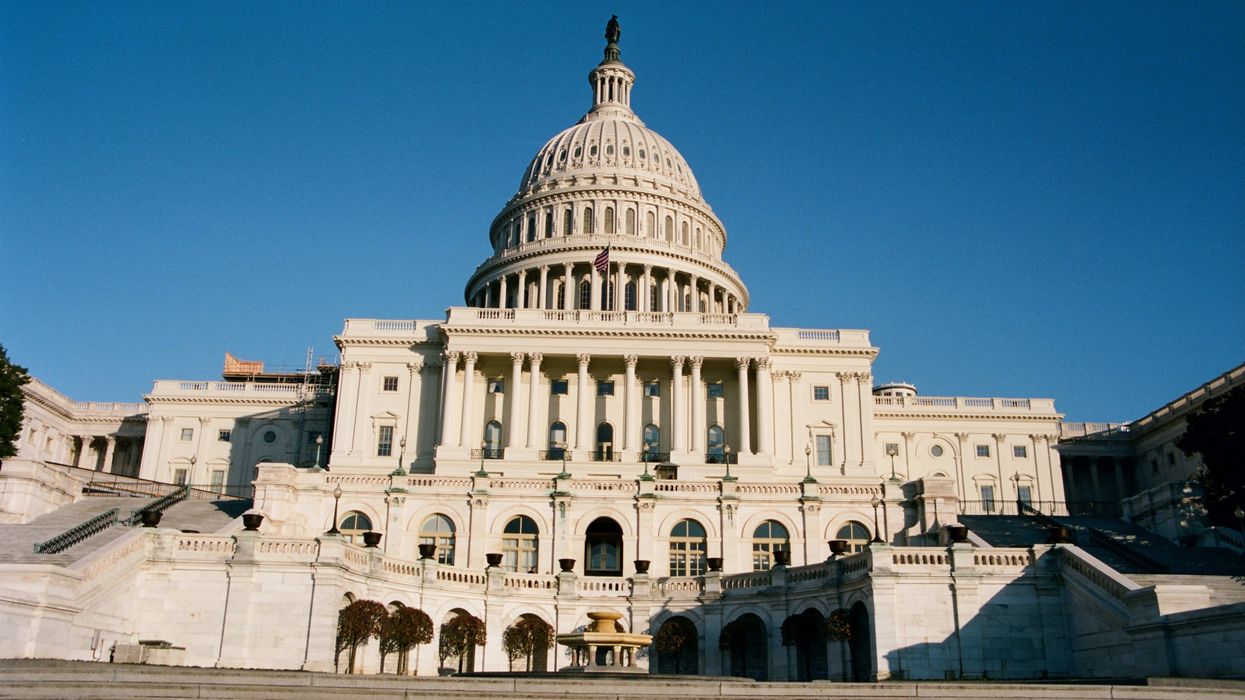In an exciting development for New York’s burgeoning yet hobbled cannabis industry, the Office of Cannabis Management (OCM) has released a set of revised regulations that will shape the future of cannabis businesses in the state.
These new regulations bring about significant, yet much needed changes to licensing, co-location, compensation arrangements, purchasing limits, and consumption areas, offering both opportunities and clarity for NY’s cannabis entrepreneurs and consumers alike.
One of the key highlights of the revised regulations is the introduction of the provisional license. Under this new framework, applicants without a pre-determined location can now obtain a provisional license by submitting initial information about their business and demonstrating their eligibility. This approach aims to reduce upfront costs and overhead for applicants and provide them with a "pre-approval" from the State while they search for a suitable location, secure funding, and assemble their teams. Additionally, the regulations outline with more clarity the general application process, enabling prospective applicants to prepare the necessary materials in advance of formal application windows.
Another significant update is the allowance for co-located adult-use and medical dispensaries. Starting from December 29, 2023, the first co-located store from an existing RO’s (Registered Organization) can open its doors, followed by the second and third co-located dispensaries after June 29, 2024. To facilitate this transition and maintain a fair and equitable marketplace, a fee structure has also been established. Co-location licensure for RO’s requires an initial payment of $5 million, with the remaining amount due upon the opening of the second co-located dispensary or in $5 million installments, to be paid within 30 days of each $100 million in revenue generated by the dispensary, up to a maximum of $300 million.
To encourage the participation of True Parties of Interest (TPI) in New York’s adult-use cannabis industry, the annual compensation arrangement threshold has been increased. TPIs, individuals who have a significant financial interest in a cannabis license or application, will now need to meet the highest of three criteria: 10% of gross revenue, 50% of net revenues, or $250,000. This adjustment aims to provide fair compensation to those contributing to the success of cannabis businesses.
Microbusiness license holders have also received favorable updates. They can now purchase up to 500 pounds of cannabis biomass per year, ensuring a reliable supply for their operations. In exceptional circumstances such as crop failure, they may also have the flexibility to acquire additional biomass, safeguarding their businesses against potentially catastrophic disruptions.
Furthermore, the revised regulations create multiple avenues for licensed adult-use cannabis businesses and local governments to establish designated areas for cannabis consumption. In addition to on-site consumption licenses, retail dispensaries can now designate a distinct area on their premises called a Limited Retail Consumption Facility. Accessible only to individuals aged 21 and above, this area allows customers to use the cannabis products they have purchased in a controlled environment. The revised draft regulations also grant local governments the power to identify cannabis consumption areas within their jurisdictions, exempting certain spaces from the Clean Indoor Air Act.
While the changes have been largely seen as positive, it is important to acknowledge the diverse perspectives surrounding these new regulations.
While the revised regulations announced yesterday by the Office of Cannabis Management (OCM) have been largerely seen as positive, they have generated significant discussion and debate within the New York cannabis industry and within the broader cannabis industry. It is therefore extremely important to acknowledge the diverse perspectives surroounding these new regulations.
For instance, re: Provisional Licensing: While the introduction of provisional licenses has been hailed as a way to reduce upfront costs for applicants, there are concerns about the potential drawbacks. Critics argue that this approach may lead to an oversaturation of provisional license holders who are still searching for suitable locations. This could potentially result in increased competition and market volatility, making it more challenging for businesses to thrive in an already competitive landscape.
With regards to Co-located Dispensaries (Medical + Adult Use), some view the fee structure associated with this transition as prohibitively expensive. These critics argue that the $5 million initial payment and subsequent installments based on revenue may present significant financial barriers for businesses seeking to establish co-located dispensaries. This aspect of the regulations could limit the ability of small businesses to participate in this aspect of the market.
The increase in the annual compensation arrangement threshold for True Parties of Interest (TPI) has generated mixed reactions. While proponents argue that this adjustment ensures fair consideration for TPIs, others contend that it may exclude smaller stakeholders from participating in the industry. The new threshold could disproportionately favor larger investors and businesses, potentially stifling diversity and inclusion within the cannabis market.
The allowance for microbusiness licensees to purchase up to 500 pounds of cannabis biomass per year has generally been seen as a positive development. However, there are some concerns about the definition of "business-threatening circumstances" that would permit additional biomass purchases. Critics argue that vague criteria may lead to inconsistent enforcement and potential misuse, potentially disadvantageous to smaller businesses that genuinely face critical challenges.
The creation of pathways for designated cannabis consumption areas has sparked discussions about the implications for public health and safety. While the regulations aim to provide controlled environments for cannabis consumption, opponents worry about the potential negative effects on communities and the overall normalization of cannabis use. Striking a balance between consumer freedoms and responsible regulation remains a challenge in this aspect of the industry.
According to cannabis attorney Jeffrey Hoffman of Jeffrey Hoffman & Associates, "These new regulations are smart and a game changer and have the capacity to bring about substantial transformations and advancements within the industry.
Asked about the regs around on-site consumption, Mr. Hoffman believes “it is what will differentiate NY, and especially NYC."
As Mr. Hoffman noted, the differentiation that these regulations seemingly deliver specifically for New York, and more prominently for New York City, underscores the belief that these regulations will set the state and its largest city apart from other regions, potentially paving the way for unique opportunities and market dynamics.
These revised regulations not only provide a framework for the future of cannabis businesses in New York but also prioritize consumer safety, economic growth, and entrepreneurial opportunities. With the revised regulations now in effect, aspiring cannabis entrepreneurs and enthusiasts can confidently embark on their journeys in this rapidly evolving industry.
The diverse perspectives within the industry continue to contribute to a broader and necessary dialogue that aims to shape a thriving and inclusive cannabis market in New York.







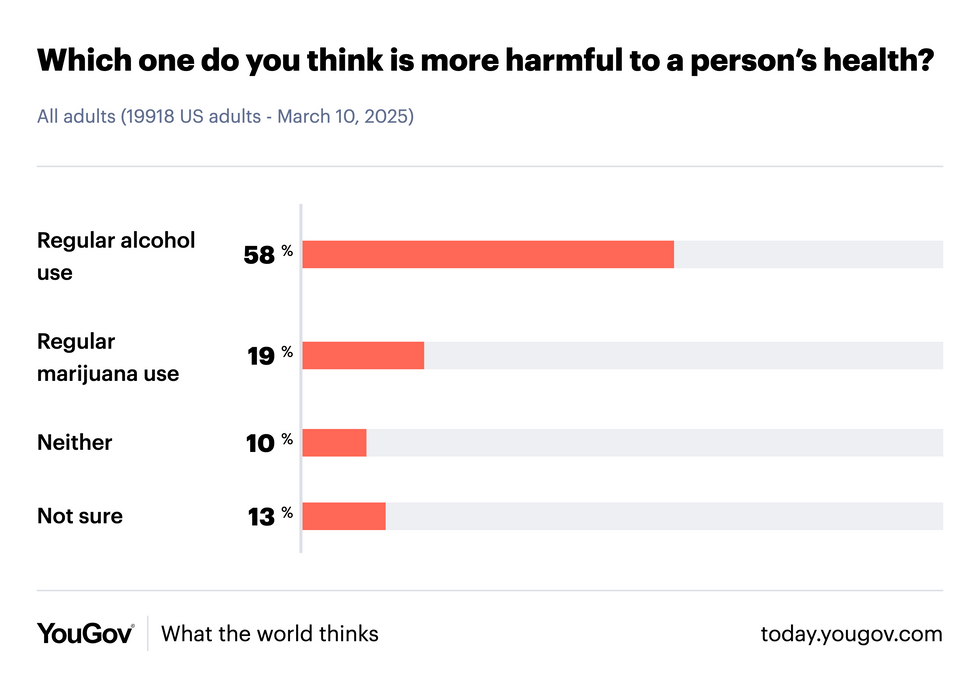 YouGov survey results - alcohol vs. marijuana
YouGov survey results - alcohol vs. marijuana  Weed’s Image Glow-Up Is Real
Photo by
Weed’s Image Glow-Up Is Real
Photo by 





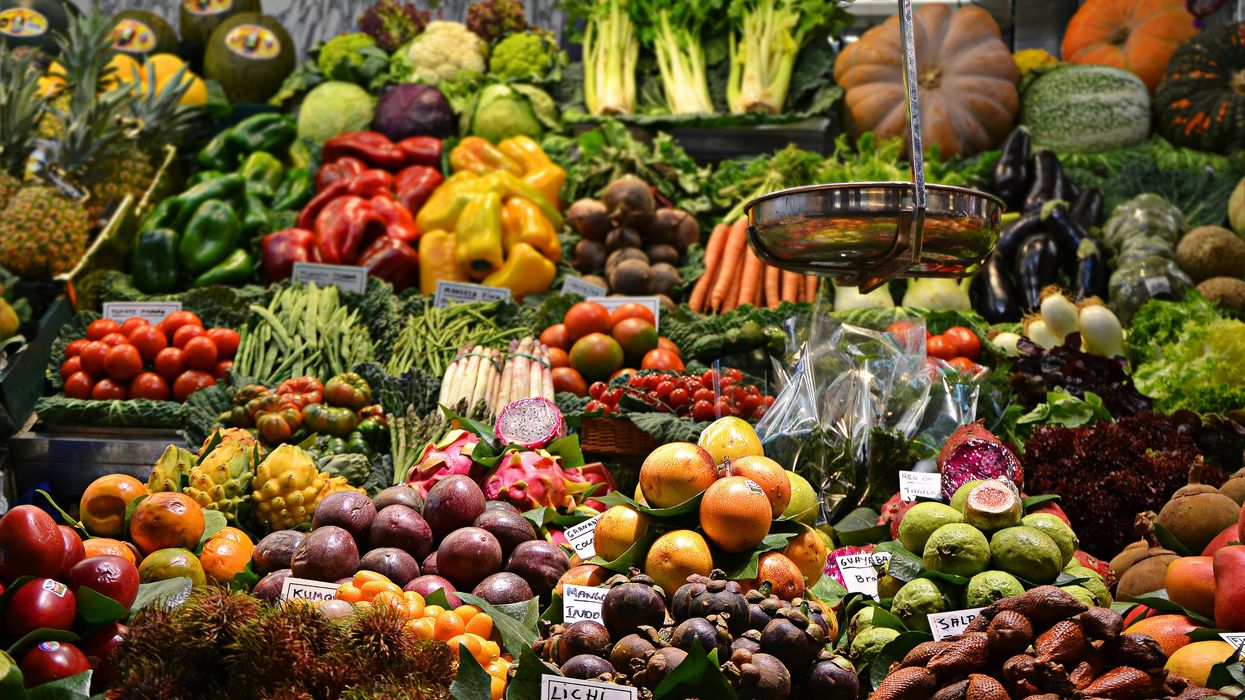

 New England Patriot Rob Gronkowski at the Revelry Buyers Club 2024 - The Bluntness
New England Patriot Rob Gronkowski at the Revelry Buyers Club 2024 - The Bluntness Temeka Group's Mike Wilson with Happy Munkey's Vlad Bautista at the Revelry Buyers Club 2024 - Basilica Hudson.
Temeka Group's Mike Wilson with Happy Munkey's Vlad Bautista at the Revelry Buyers Club 2024 - Basilica Hudson. 
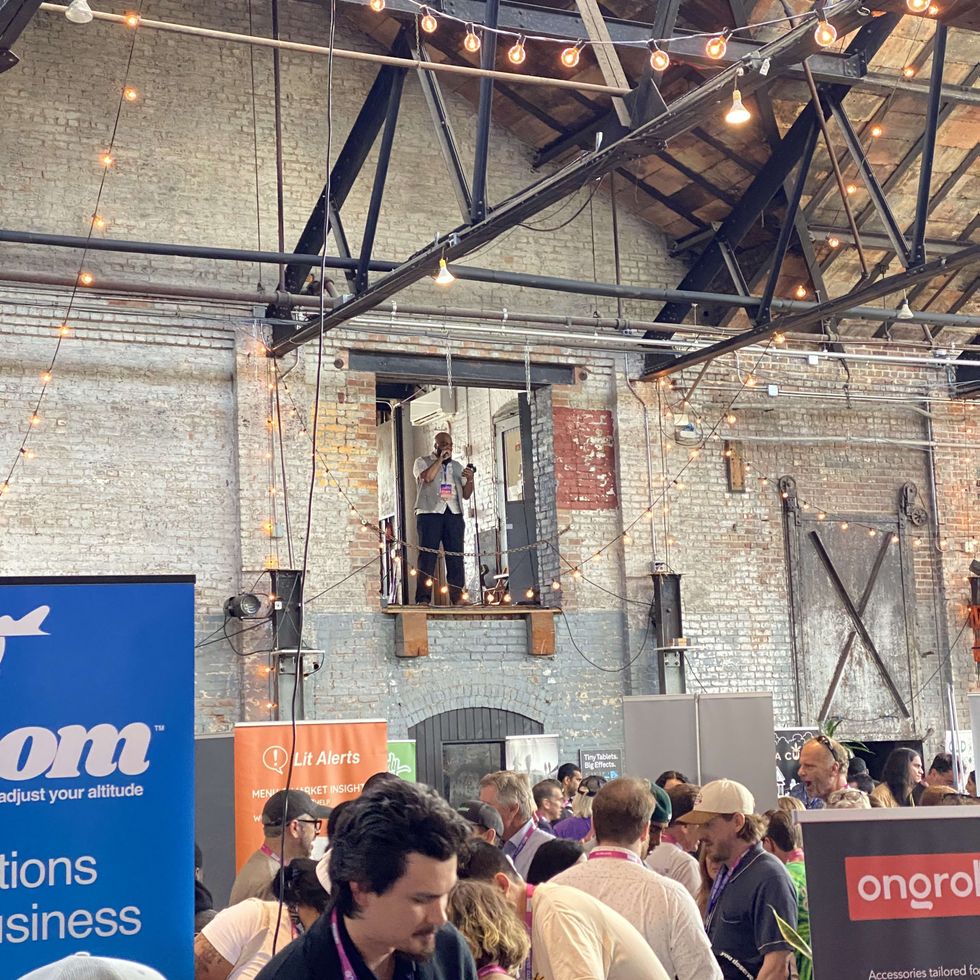 Are you not entertained????? On The Revel - Revelry Buyers Club
Are you not entertained????? On The Revel - Revelry Buyers Club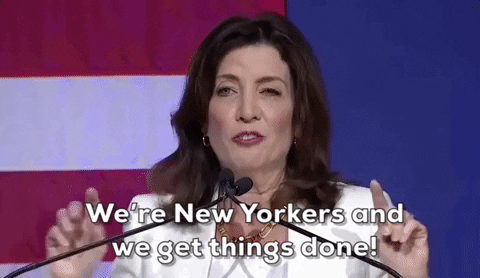
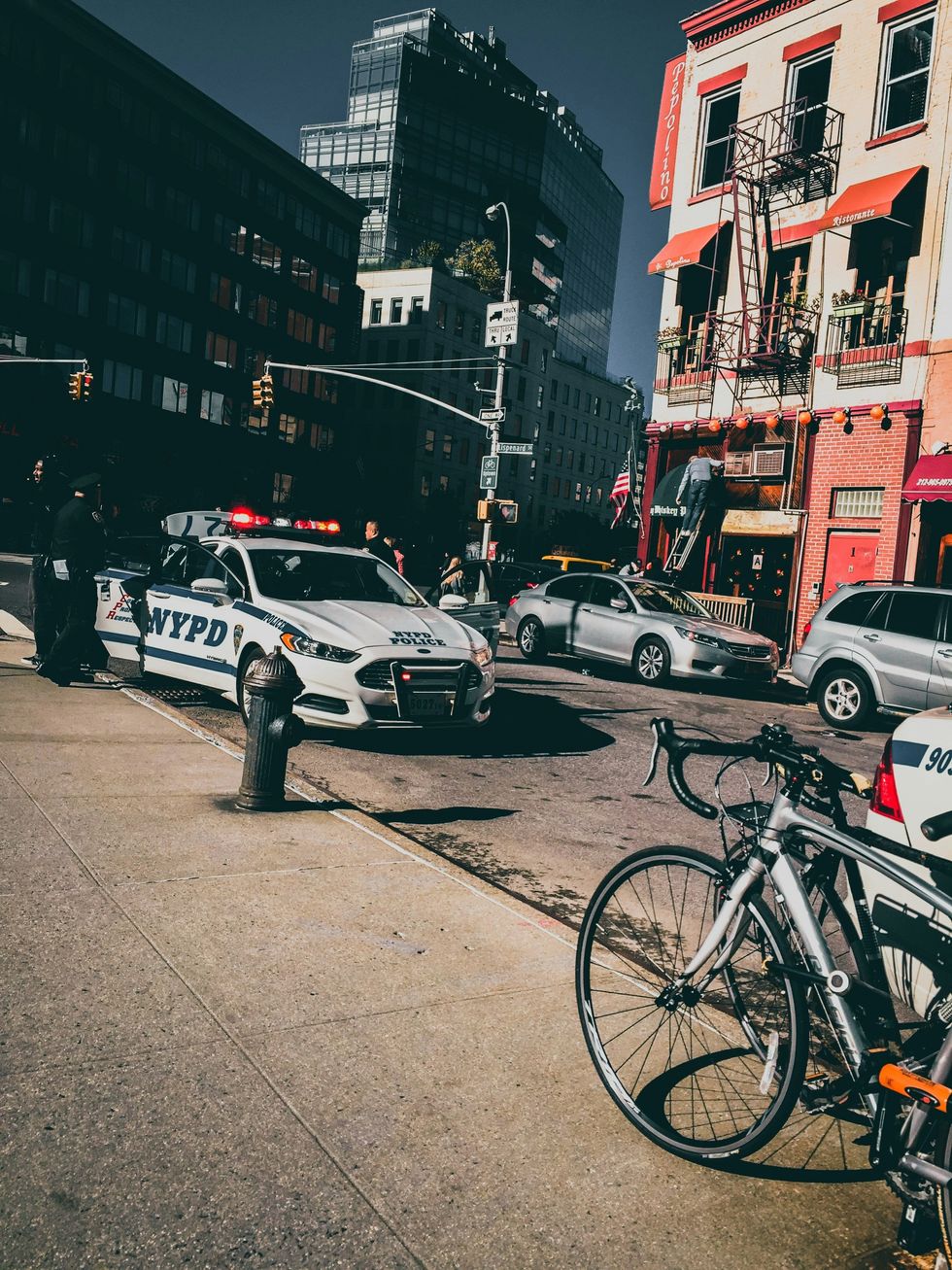 Why Gov. Hochul’s Cannabis Crackdown Stinks of Regression - The Bluntness
Photo by
Why Gov. Hochul’s Cannabis Crackdown Stinks of Regression - The Bluntness
Photo by 